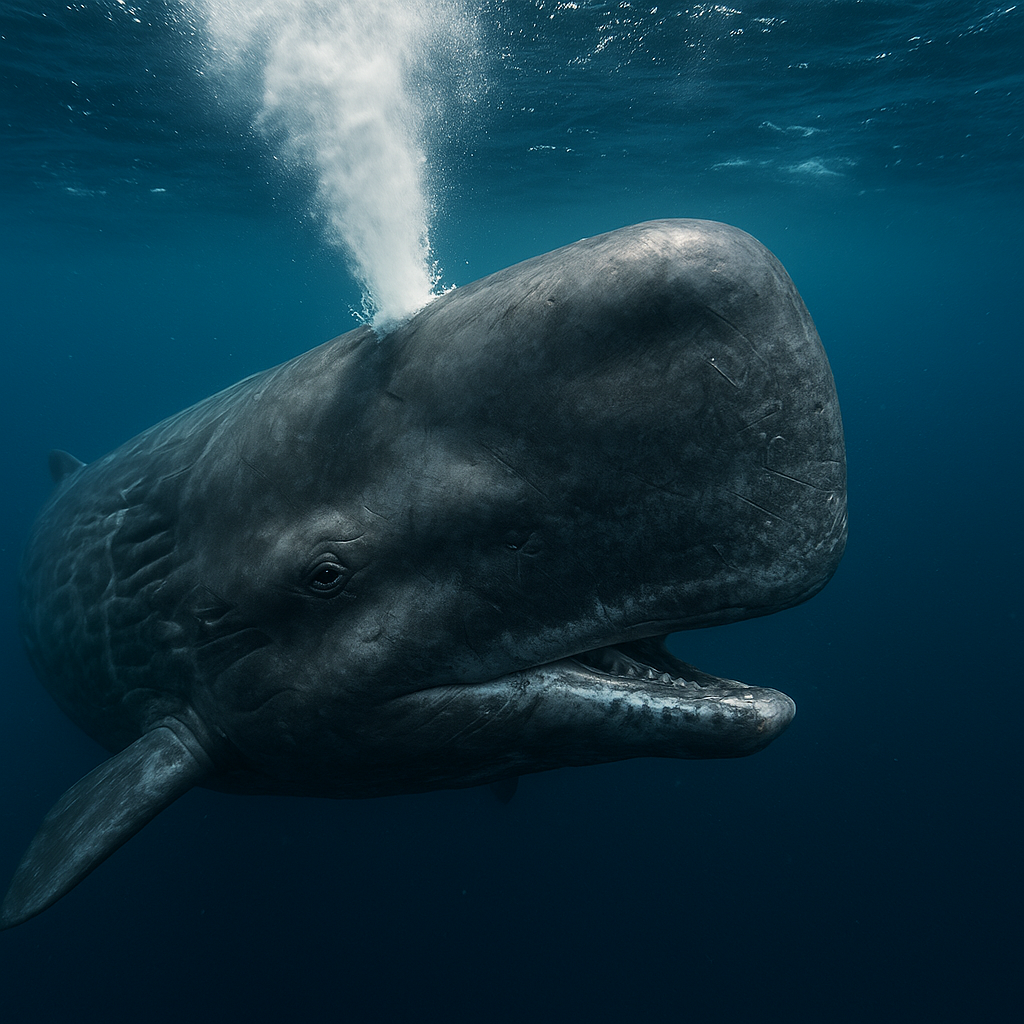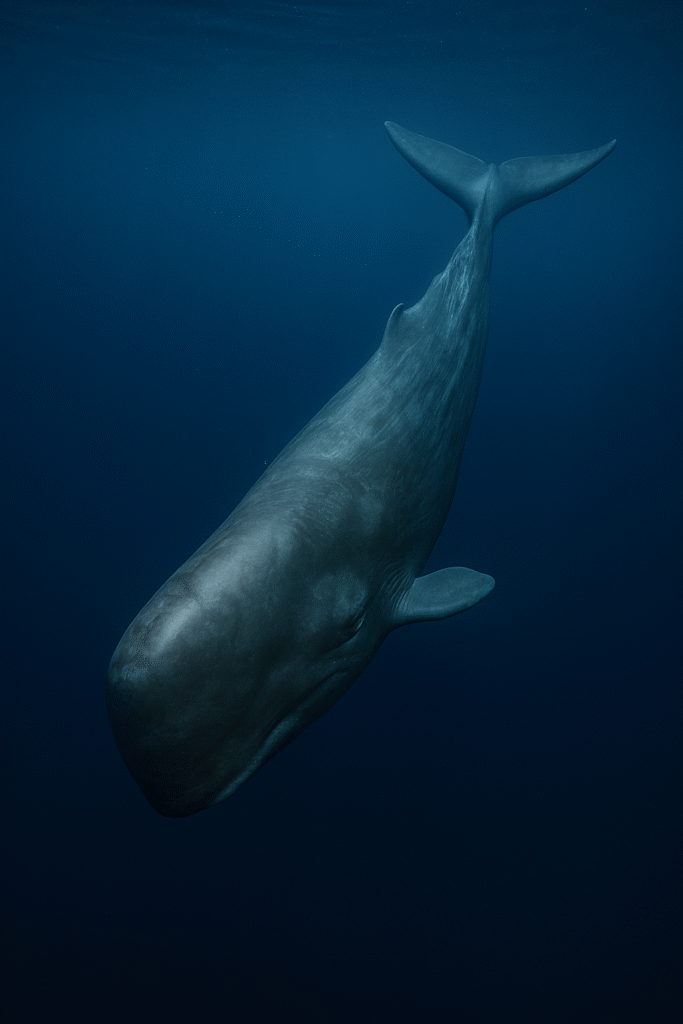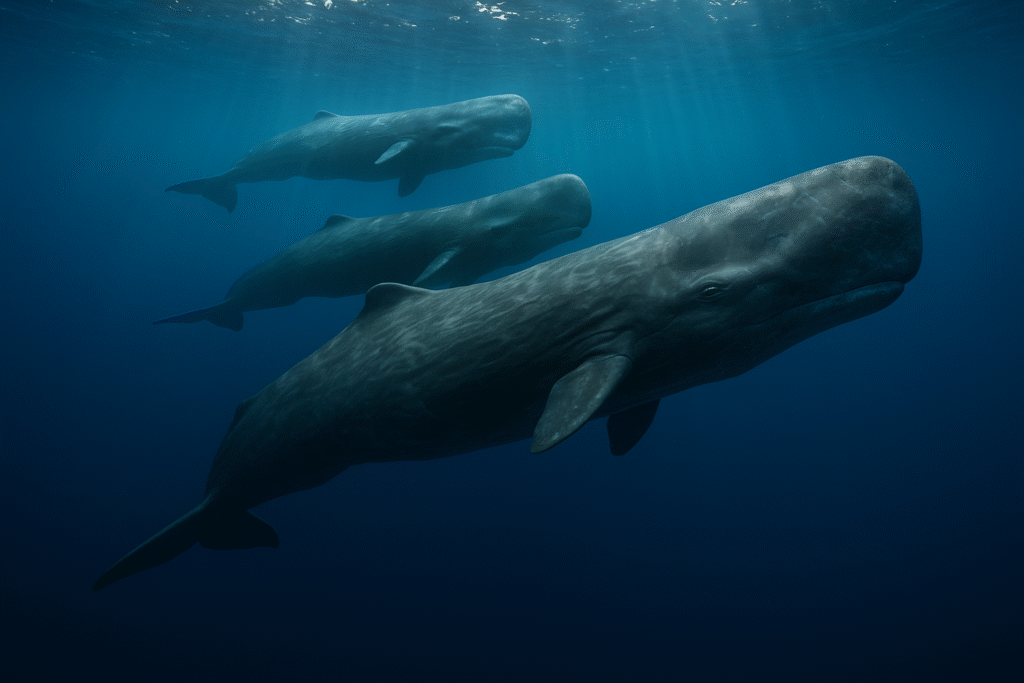In the boundless blue of the open ocean, where sunlight thins and pressure crushes, lives one of Earth’s most enigmatic leviathans: the sperm whale (Physeter macrocephalus). Known as the largest toothed predator on the planet, this colossal mammal embodies both the mystery and the majesty of the sea.
A creature of paradox, the sperm whale is at once a hunter and a poet—its vast head houses not only the means to subdue giant squid in abyssal battles but also a voice that reverberates like thunder beneath the waves.

Architects of Sound
Unlike the haunting songs of humpbacks, sperm whales communicate in clicks—structured pulses of sound that can travel for miles. Scientists call these codas, and each pod seems to have its own dialect. To enter the world of sperm whales is to enter a world built not by sight but by sound, a society shaped by resonance in the dark.
Their echolocation is so precise that they can track a squid a kilometer away in utter darkness. And yet, beyond hunting, the codas seem to tell stories: identities, lineages, perhaps even a culture echoing through generations.
Lords of the Abyss
When a sperm whale dives, the ocean itself seems to hold its breath. With a single exhalation that blasts like steam from a ship’s engine, it arches and slips beneath the surface, descending to depths of over 2,000 meters. Down there, in the black silence, it seeks out prey as massive as the giant squid—battles written not in observation, but in scars etched on its skin.
These hunts are acts of endurance, lasting over an hour on a single breath. In that silence, the whale becomes the embodiment of patience and power.
Whales in Myth and Memory
For centuries, the sperm whale has haunted the human imagination. To whalers of the 18th and 19th centuries, it was both prize and peril, immortalized in Melville’s Moby-Dick as a symbol of obsession and the sublime.

In Polynesian traditions, whales were guardians of voyagers, guiding canoes across treacherous seas. In Norse sagas, sea monsters bearing the shape of whales embodied chaos. Everywhere, humans saw in them something greater than animal life—something mythic.
Fragile Giants
Despite their immense size and power, sperm whales are not invincible. Centuries of industrial whaling decimated their populations, reducing their numbers by the hundreds of thousands. Though whaling has largely ceased, the threats remain: collisions with ships, entanglement in fishing gear, and the rising cacophony of noise pollution that disrupts their communication.
Climate change adds another layer of danger, altering the distribution of squid and shifting the balance of deep-sea ecosystems. For a species so dependent on both sound and prey, the risks are profound.
Keepers of the Deep
To encounter a sperm whale today is to glimpse the ocean’s memory. They are archivists of the abyss, carrying in their scars the history of battles unseen, and in their songs, the wisdom of a society older than ours.
They remind us that strength is not only in muscle and bone but in resilience—in the ability to endure darkness, to navigate silence, to carry stories across generations of salt and tide.

As long as sperm whales roam the oceans, the deep is not empty. It is alive with thunder, with memory, with life vast and unseen.


Reply